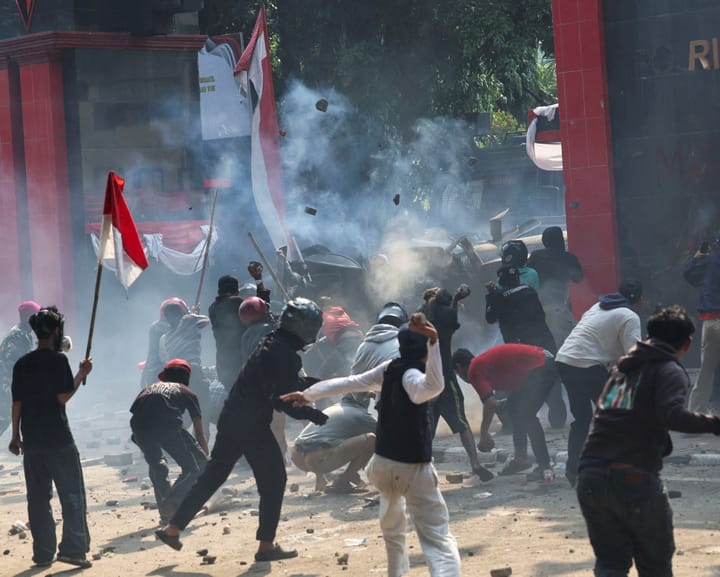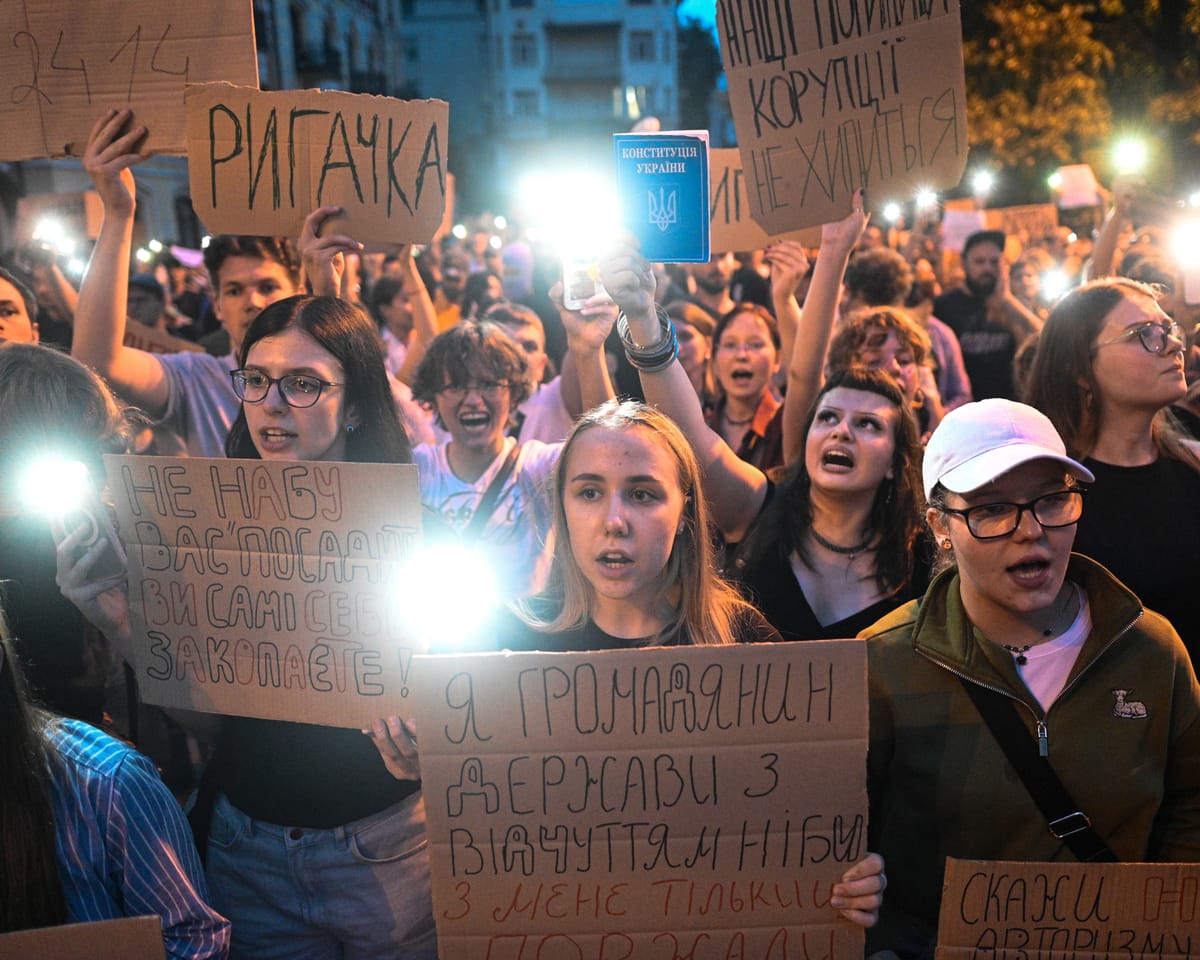European Leaders Urge Zelenskyy to Reconsider Anti-Corruption Reforms as Protests Continue
European leaders increased pressure on Volodymyr Zelenskyy on Wednesday to overturn a controversial move that reduces the authority of two key anti-corruption bodies, as demonstrators gathered in Kyiv for a second consecutive day.
Countries supporting Ukraine, including Germany, France, and Sweden, expressed concerns over the new legislation, signed into law by the Ukrainian president on Tuesday. They cautioned that the changes risk undermining Kyiv’s EU membership aspirations and weakening anti-corruption efforts.
The bill, swiftly approved by Ukraine’s parliament, the Verkhovna Rada, effectively places the National Anti-Corruption Bureau (NABU) and the Specialized Anti-Corruption Prosecutor’s Office (SAPO) under government oversight.
Zelenskyy has justified the reforms, stating they were necessary to remove Russian influence from Ukraine’s "anti-corruption infrastructure." The changes grant extensive authority to the prosecutor general's office, including the ability to dismiss cases against high-ranking officials.
On Wednesday, the president met with law enforcement and anti-corruption agency leaders in Kyiv, agreeing to develop a joint action plan next week to reinforce the country’s governance. However, he did not directly respond to criticism from activists, who accuse him of consolidating power and ignoring public concerns. Veterans, Kyiv Mayor Vitali Klitschko, and other prominent figures have urged him to repeal the legislation.
European Commission President Ursula von der Leyen also expressed dissatisfaction with the amendments, requesting an explanation from Zelenskyy and conveying her serious concerns, according to her spokesperson.
Respect for the rule of law and anti-corruption efforts are fundamental to the EU. Ukraine, as an aspiring member, must uphold these principles without compromise,” her office added.
EU Defense Commissioner Andrius Kubilius warned Kyiv that trust, vital during wartime, can be lost with a single misstep by leadership. "Only transparency and open dialogue with Europe can restore it," he emphasized.
France’s European Affairs Minister, Benjamin Haddad, suggested there was still time for Ukraine to reverse course. "It's not too late to reconsider," he told France Inter radio, vowing close scrutiny of the issue.
It remains uncertain whether Zelenskyy will yield to domestic and international pressure or withstand what has become the most significant political challenge of his tenure. Tuesday’s protests, which spread across several cities, marked the largest public dissent since Russia’s full-scale invasion in 2022.
Civil society leaders accuse the government of breaking an unspoken agreement—that criticism of official misconduct would be restrained during wartime. They argue this understanding has been violated.
Read next

"UN rights officials call for leadership to label Israel's Gaza offensive as genocide"
Hundreds of UN Human Rights Staff Urge Leadership to Label Gaza Offensive as Genocide
A significant number of employees from the United Nations’ primary human rights body have endorsed an internal letter urging their leaders to recognize Israel’s military campaign in Gaza as genocide and to push member states

"Demonstrations break out in Indonesia after police car fatally strikes man"
Hundreds of Indonesians have gathered at locations across Jakarta to demonstrate following the death of a man struck by a law enforcement vehicle, marking the first major challenge for Prabowo Subianto’s administration, which took office nearly a year ago.
The victim, a motorcycle ride-hailing driver, was hit during clashes

"UN to halt Lebanon peacekeeping mission next year amid US, Israeli pressure"
The UN Security Council has extended the peacekeeping mission in Lebanon for another 16 months, though it will conclude by the end of 2026 following pressure from Israel and the US.
Council members unanimously approved the decision on Thursday to renew the mandate of the UN Interim Force in Lebanon

